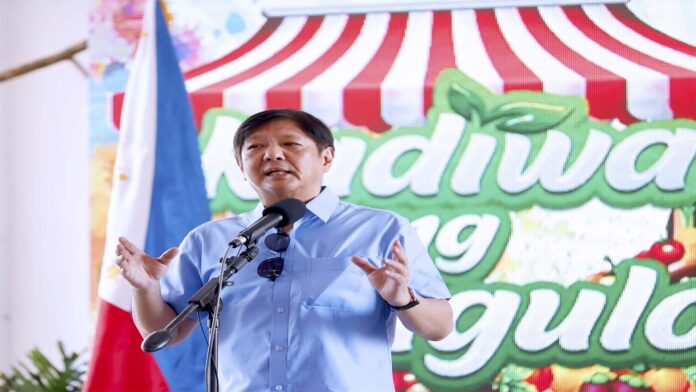President Ferdinand R. Marcos Jr. on Wednesday said he intends to talk with Chinese Ambassador to the Philippines Huang Xilian and clarify the latter’s remarks about the safety of overseas Filipino workers (OFWs) in Taiwan.
In a chance interview in Bulacan, Marcos said there must have been an element of “lost in translation” in Huang’s words regarding the OFWs in Taiwan, considering that English is not the ambassador’s first language.
The Chinese diplomat earlier “advised” Manila to oppose “Taiwan independence” if it genuinely cares about the 150,000 Filipinos working there amid rising cross-strait tensions.
“I’ll be talking to the Ambassador soon. And I’m sure he will be… I’m sure he’ll be very anxious to give his own interpretation of what he was trying to say,” Marcos said.
“We were all a little surprised, but I just put it down to the difference in language,” he added.
The Department of Foreign Affairs (DFA) on Tuesday said no Filipino is seeking government help for repatriation in Taiwan as of yet amid the China-Taiwan tension.
Foreign Affairs Undersecretary for Migrant Workers Affairs Eduardo Jose de Vega reassured Filipino lawmakers and the public that contingency plans have long been in place in all places where there is high concentration of Filipino workers, including Taiwan.
The reassurance came following the remarks of Huang last Monday, who claimed that the United States intends to take advantage of the new sites under the Enhanced Defense Cooperation Agreement (EDCA) to interfere in the Taiwan Strait situation.
During their meeting last week, National Security Adviser Eduardo M. Año personally assured the Chinese ambassador that the additional EDCA sites are not meant for offensive operations against China or for interference in the Taiwan issue but are meant to protect the territorial integrity of the country.
He assured Huang that the Philippines is for the peaceful resolution of the Taiwan issue and for the continued stability of the region.
Año also explained that the choice of the EDCA sites is in accordance with the Strategic Basing Plan of the Armed Forces of the Philippines (AFP).
The identified EDCA sites are Philippine bases which the country wants to further develop based on the requirements for strategic basing and development of the AFP.
National Security Council assistant director general and spokesperson Jonathan Malaya earlier said the selection was not US-dictated but identified by the AFP. (PNA)


